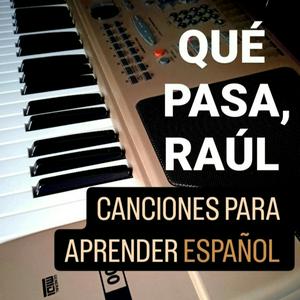38 - Este SÍ es un episodio sobre Los Planetas
Desde el principio, Los Planetas estuvieron influidos por un cierto tipo de sonido, denso y rico en texturas, inspirado por grupos como My Bloody Valentine or Sonic Youth. Atmósferas pesadas, cargadas de electricidad guitarrera, y melodías susurrantes - whispering melodies - que a veces eran inteligibles para el oyente, y otras no tanto.Un buen día es uno de los momentos más “popis” del grupo granadino, con una letra sencilla y una melodía cantarina, fácilmente tarareable – a tune with a simple lyric and a lilting, easily hummable melody.Gramaticalmente, el tema es una ilustración ideal del pretérito perfecto, the present perfect, un tiempo verbal que los profes solemos introducir para hablar de hábitos cotidianos – daily routines. ‘What have you done today?’ “¿Qué has hecho hoy?” En la canción se usa este tiempo un total de… ¡24 veces!Tal como sugiere el título, Un buen día narra las peripecias del narrador – his ups and downs – durante un día cualquiera, desde que se levanta a media mañana hasta que se acuesta, a altas horas de la madrugada. Los eventos son ordinarios, cotidianos, aunque desde muy pronto empezamos a percibir, por medio de las pistas que nos va dejando el cantante, que aquí hay algo más: un drama subterráneo que avanza y se agita por debajo de la aparente normalidad de este “buen día”…Episode art: Alison Stirling / @stirling.alison*****Sign up here for the show's free Newsletter.If you appreciate my work and would like to support it, make a one-off donation at Buy Me a Coffee. You can also follow and rate the show on Spotify or wherever you get your podcasts.Check out my Instagram for comments, news and to see some of my artwork. If you would like to take Spanish lessons with me, send me a Direct Message on Instagram, or contact me through the Newsletter. Visit my art website to see more of my paintings, drawings and portrait work.

